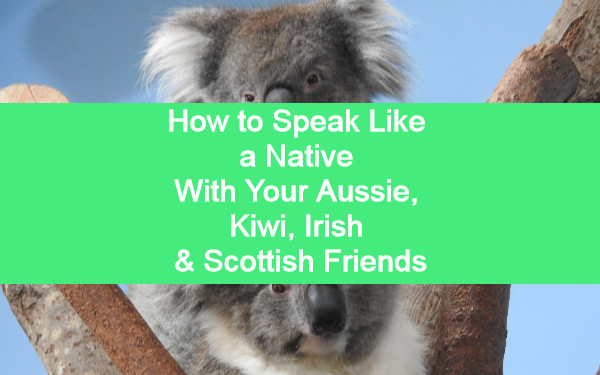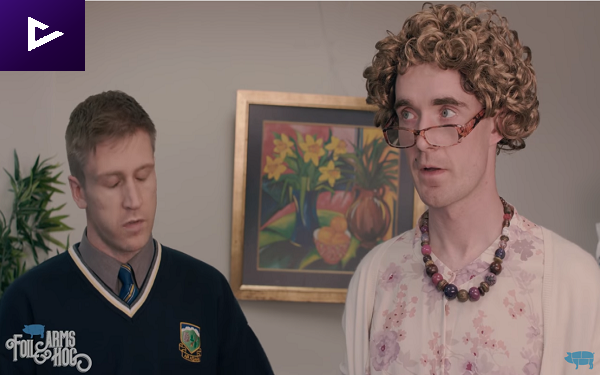Are you planning a working holiday to Australia or New Zealand?
Do you want to study abroad—but not in the US?
Do you sometimes have difficulty understanding different accents in English?
TV shows, movies and listening to music are some of the best ways to learn how to speak like a native. This is one of the reasons why many people choose English names from popular series such as Friends or The Big Bang Theory. I’ve lost count of the number of Chandlers and Phoebes I’ve met over the years!
While these shows are great for learning American English, what if you want to visit other English-speaking countries, such as Australia, New Zealand, Ireland or the UK?
If you are planning to study abroad or do a working holiday in one of these places, chances are you will encounter accents and words that sound alien(1) even to other native English speakers.
With that in mind, here is a list of some unique dialect words, as well as the best things to watch and listen to if you want to master some of the less commonly heard versions of the English.
Australia
Key dialect word: Crook
In most English-speaking countries, “crook” is another word for a criminal or someone who is dishonest. But if someone in Australia tells you they are “feeling crook,” wait a minute before phoning the police! In Australia, crook can also mean to be or feel sick, or to get angry with someone.
Lachlan: Do you want to come cycling with us today?
Banjo: Ah nah mate, I’m feeling crook [sick], I’m going to stay at home and recover.
Lachlan: But you promised you would come with us!
Banjo: Don’t go crook [angry] on me for getting crook [sick]!
What to watch: The Castle
What to listen to: The Chats
The Chats went viral a few years ago with their song “Smoko.” As well as providing an introduction to the Queensland accent, it also gives you another Australian word to learn. Short for “smoking break,” smoko is also used to mean taking a break in general.
Banjo: Can you help me with this?
Lachlan: I’m on smoko! So leave me alone!
New Zealand
Key dialect word: Tramping
In many places, a tramp is someone who is homeless, such as the homeless dog in the movie The Lady and in the Tramp. For New Zealanders, however, saying that someone enjoys “tramping” is more of a compliment than an insult. Appropriately for a country that is filled with breathtaking scenery, tramping means to go out and enjoy nature by hiking and camping.
Bret: What are your plans for the weekend, Jermaine?
Jermaine: Me and Murray and are going to go tramping up Mount Taranaki. Do you want to come?
Bret: Sounds good! I just bought a new tent and hiking boots.
What to watch: Flight of the Conchords
One of the most difficult hurdles when learning a language is mastering humor. American humor is quite direct and their shows often have a laugh track(2) to let you know when something funny has been said. On the other hand, comedy shows where nobody laughs or even smiles are good for learning more subtle forms of humor. One such show is Flight of the Conchords, which tells the tale of New Zealand’s fourth-most-popular folk parody(3) musical duo as they try to make it big in America.
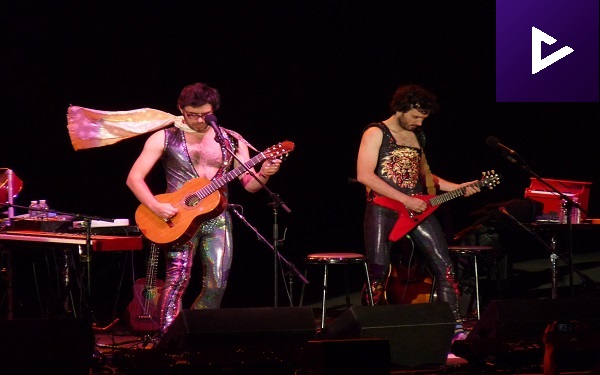
What to listen to: Flight of the Conchords
Not only are Flight of the Conchords great comedians, their music is also really good. Most of their songs are short stories, which makes them easy to follow and full of useful vocabulary.
Manchester
Key dialect word: Sound
“Sound” is another common English word that has a very different meaning in certain places. Most of the time, sound means either a noise or something that is solid, e.g. “this building is structurally sound.” In Manchester and the surrounding region of Lancashire, however, sound can also be used to say that something is good or agreeable.
Liam: What do you think of Gary’s new girlfriend?
Noel: She’s sound.
Liam: Sound mate. What time do you want to play football? 8 p.m.?
Noel: Sound.
What to watch: Shameless
Shameless is a black comedy(4) about the struggles of the poor Frank Gallagher and his family. While the show is quintessentially(5) English, an American version is also one of the longest-running series currently on TV in the U.S.
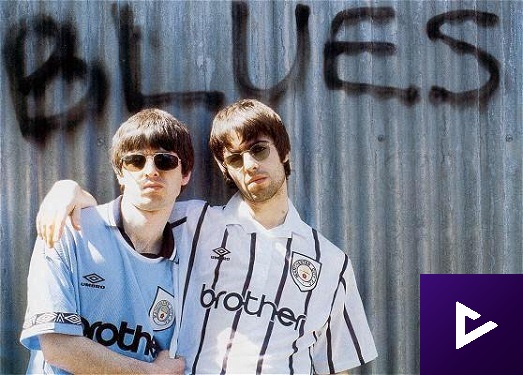
What to listen to: Oasis
Manchester has produced loads of famous bands, but Oasis is perhaps the best known. Oasis is almost as famous for the constant fighting between the two brothers in the band, Noel and Liam Gallagher, as it is for its music.
Ireland
Key dialect word: Craic/crack
Like many of the dialect words on this list “craic,” also spelled “crack,” has several meanings. The first use is when asking about what plans someone has. This takes the form of the question: “What’s the craic?”
Seamus: What’s the craic [plan] for tonight?
Seán: We’re going to go to the pub around 8 p.m.
The second use is a little bit more difficult to explain. Often it is used in place of the phrase “we had a really good time,” with craic as a replacement for “time” or “fun”:
Seamus: How was your night at the pub yesterday?
Sean: It was right good craic. There was a band playing.
What to watch: Father Ted; Foil, Arms and Hog
There is no bigger Irish stereotype(6) than Catholic priests and drinking alcohol, both of which are prominent in the Irish comedy series Father Ted. The show is about a priest named Ted as he struggles to look after two other priests, the alcoholic(7) Jack and the dimwitted(8) Dougal.
Another great choice is the YouTube sketch comedy(9) group Foil, Arms and Hog, whose videos are available on VoiceTube.
What to listen to: Fontaines D.C.
Many bands try to sound American despite not being from there, but one group that has kept their Dublin accents is the Fontaines D.C., making them essential listening for those going to Ireland.
Northern Ireland
Key dialect word: Buck eejit
While they share an island, English in Northern Ireland still has some differences with Irish English, and is more of a mixture of Irish English and Scottish English. “Buck eejit” is a phrase that may sound like another language, but is actually just Northern Irish for “idiot.”
William: Fergal, why is the front door all sticky?
Fergal: You buck eejit! It’s covered in wet paint! Didn’t you see the sign I put up?
What to watch: Derry Girls
Derry Girls is about a group of Northern Irish girls and one unfortunate English boy at an all-girls high school in the 1990s, and is a great introduction to the accents and humor of Northern Ireland.
What to listen to: The Undertones
Because of their simplicity and the light-hearted nature of their songs, with most of the lyrics about things like football, chocolate, and girls, The Undertones are great for language learners.
Scotland
Key dialect word: How?
As someone from Scotland, I could fill a book with unusual and unique Scottish dialect words. But instead of going into words that only exist in Scotland, I thought I would keep it simple with an English word that has a slightly different meaning in Scotland, and one that regularly confuses the uninitiated.(10)
When wanting to ask someone “why,” people in Scotland will often say: “How?” At first, it may sound like someone is asking you “how is this possible?” However, most of the time they are not questioning whether or not what you said could have been done, but rather why it was done. Variations include “how come?” and “how’s [is] that?”
Tam: I’m going to have to get my car fixed.
Wullie: How?
Tam: There’s a problem with the engine.
What to watch: Chewin’ the Fat
Chewin’ the Fat is a sketch comedy series set in Glasgow, Scotland’s biggest city. Not only will this provide an introduction to the most difficult Scottish accents, it also will help you learn the Scottish sense of humor, which can be quite dry.(11) For outsiders, Scottish people’s love of sarcasm and their tendency to joke with a straight face and a serious tone can sometimes cause confusion.
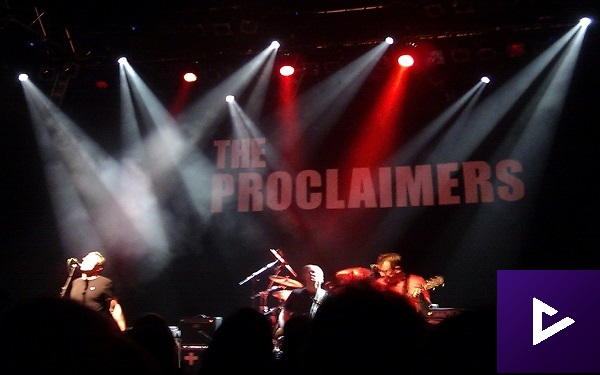
What to listen to: The Proclaimers
Apart from being famous for walking 500 miles and then walking 500 more for the girl they love in their song “I’m Gonna Be (500 Miles),” The Proclaimers are best known for their strong Edinburgh accents. This makes listening to their music useful for anyone planning to visit or move to the city.
Vocabulary
1. alien
Def: belonging or relating to another person, place, or thing, strange
Ex: The idea of sleeping late is totally alien to me. I’ve always been an early riser.
2. laugh track
Def: recorded laughter that accompanies dialogue or action
Ex: Most sitcoms use a laugh track to try and make a show seem funnier than it really is.
3. parody
Def: a piece of creative work that closely imitates a particular style for comic effect
Ex: His latest painting is a parody of contemporary art.
4. black comedy
Def: humor that is often morbid or ironic
Ex: I prefer black comedies to ones that are overly cheerful.
5. quintessentially
Def: perfectly typical or representative of a particular kind of person or thing
Ex: Tea is a quintessentially English drink.
6. stereotype
Def: an oversimplified and often prejudice idea of something
Ex: The idea that all Irish people are drunken idiots is just a stereotype. The country has 11 Nobel laureates!
7. alcoholic
Def: someone who is addicted to alcohol
Ex: I used to be an alcoholic but I haven’t had a drink for three years now.
8. dimwitted
Def: someone who is quite stupid or who unthinkingly does stupid things
Ex: Make sure you stay close to him when you’re out cycling. He’s a quite dimwitted and I’m worried he’ll get into an accident.
9. sketch comedy
Def: a comedy show that consists of shorts scenes or “sketches”
Ex: My school put on a sketch comedy show so that everyone would have a chance to perform.
10. uninitiated
Def: lacking knowledge of or experience with something, inexperienced
Ex: Rock climbing can be quite intimidating for the uninitiated, but I’m sure you’ll quickly get the hang of it.
11. dry
Def: something or someone that does not giving off warmth or enthusiasm
Ex: A lot of people think he comes across as rude, but he just has quite a dry personality.
